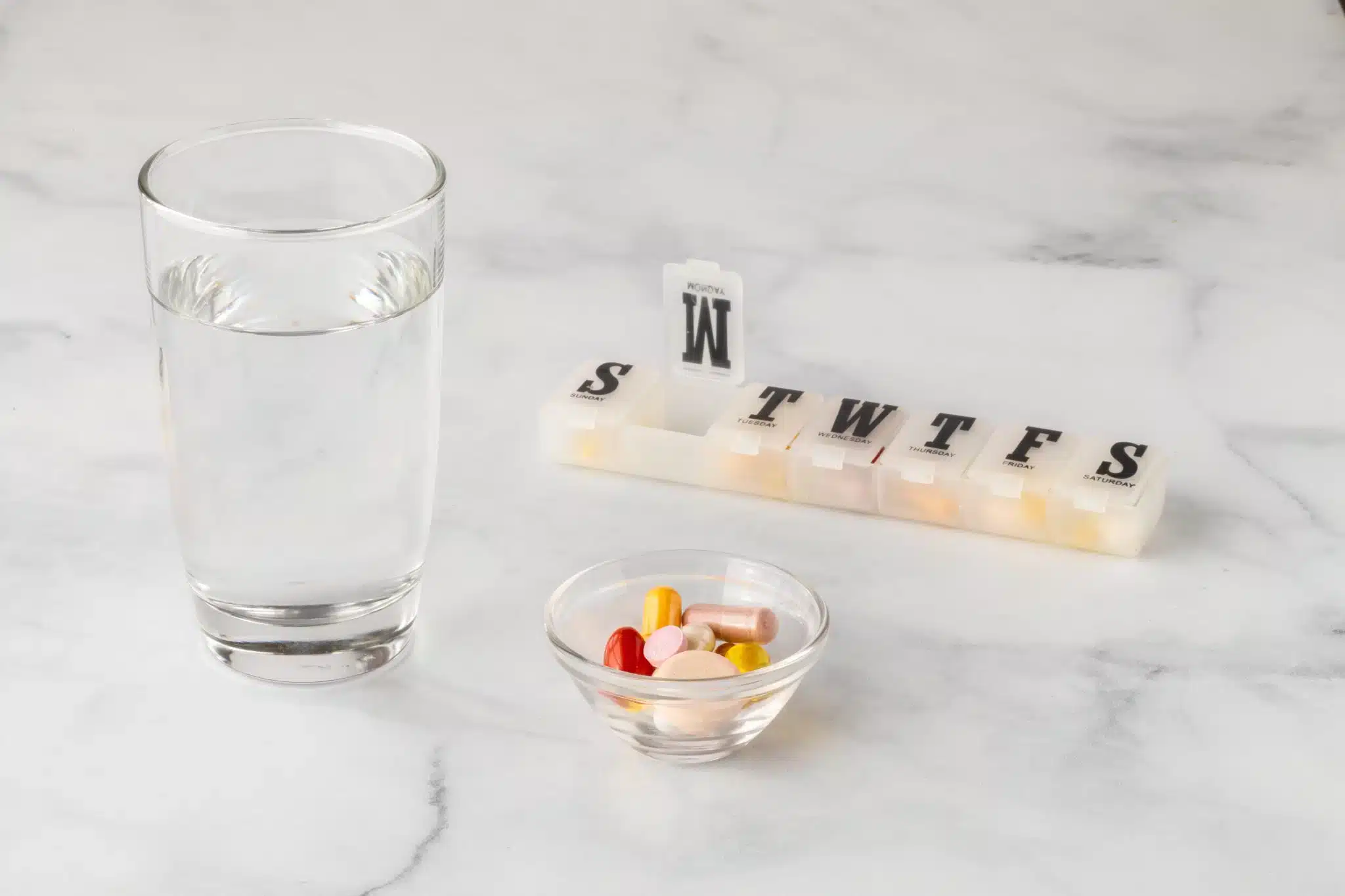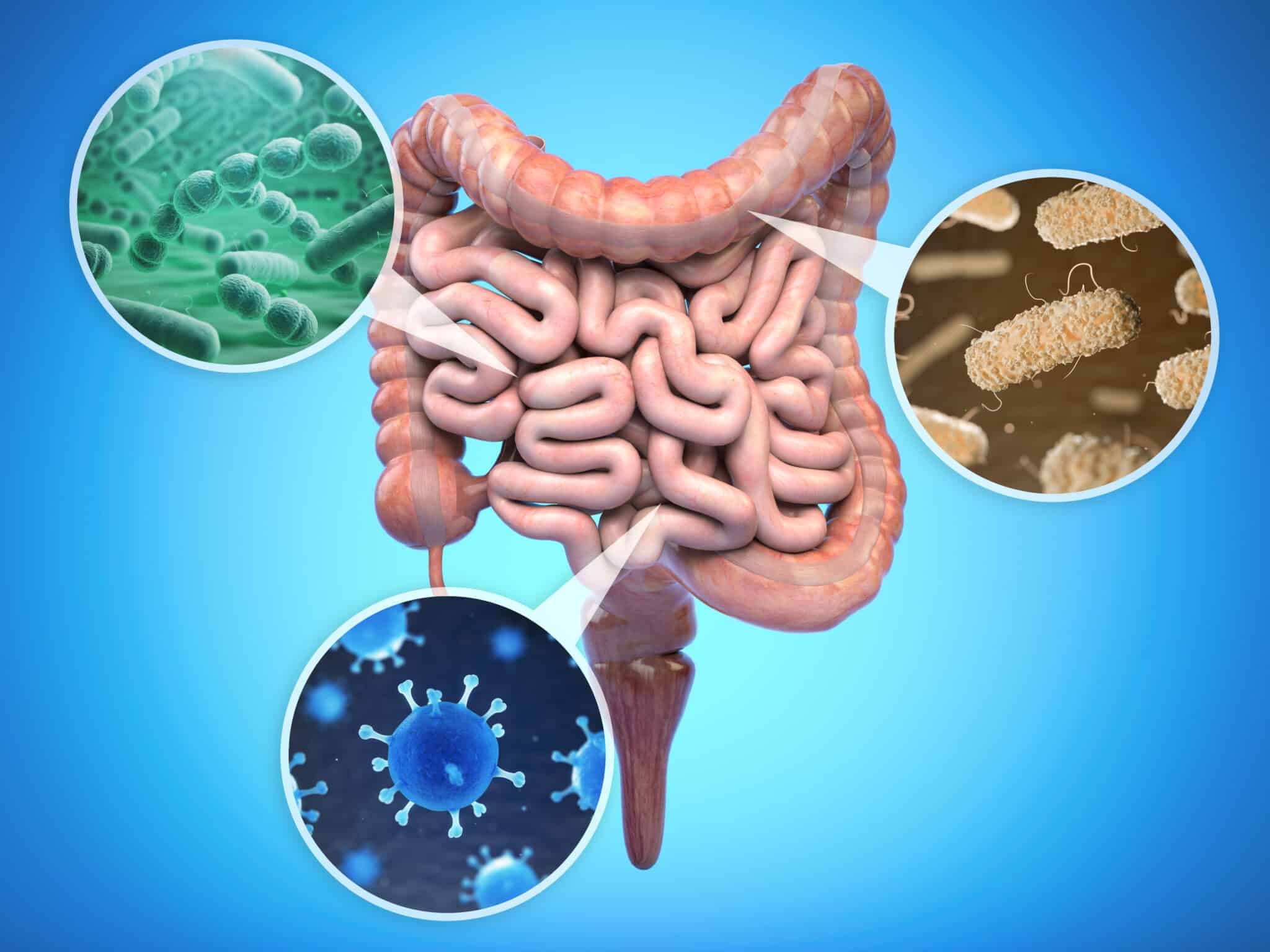
Should I Take a Probiotic Daily?
Most people think of probiotics as something to take along with or immediately after a round of antibiotics. However, newer research has shown that probiotics have benefits beyond gut healing after antibiotics, as the need to focus on sustained gut health is now well documented. Because of this, you can and should incorporate their use into your daily supplement routine.
Related: Probiotics 101
Why Take a Probiotic?
Our guts contain trillions of live microorganisms that play a supporting role in many bodily functions. Because of this, optimizing gut health is critically important to overall health. One easy way to give our gut some love is to take a daily probiotic. Probiotics contain beneficial strains of these live microorganisms that support our bodies.
How Long Does it Take to Work?
That depends. In the case of gut discomfort not associated with a medical condition, benefits can be seen in as little as a few days.[1] In general, the speed that you feel noticeable benefits depends on the state of your gut health to begin with. If you regularly experience common and everyday gas and bloating, you may notice improvements in a short period of time. With regular daily use of a probiotic, probiotics will support overall gut health, which is associated with reduced incidences of common gas and bloating. Healthy people using probiotics may even notice other positive changes, such as clearer skin, more regular bowel movements, and increased energy.
Benefits of Daily Probiotic Use
While the benefits are many, here is a quick look at a few of the short & long terms benefits:
Improves Digestion
When you take a probiotic, the good bacteria that are introduced stick to the digestive tract and help to form a protective layer. This barrier keeps needed nutrients moving along our digestive tract to be absorbed and utilized by the body, while preventing potential toxins and allergens from leaking out into the bloodstream.[2] Probiotics also help to break down our food into the nutrients our bodies need. And they can contribute to regularity.[3] Having regular bowel movements is how our body removes wastes and toxins, contributing to overall health.
Regulates the Immune System
Remember that 70% of your immune system resides in your gut.[4] When you take a daily probiotic, you are feeding your gut “good” bacteria. Their ability to restore balance and crowd out the “bad” bacteria has positive effects on the immune system. The healthy bacteria in a probiotic produce a short chain fatty acid called butyrate, which is fuel for the cells that line your intestines and are the first line of defense against pathogens.[5][6]
Promotes Heart Health
Taking a daily probiotic was found to support the maintenance of cholesterol levels in the normal range for healthy individuals.[7]
Supports Improved Mood
Yes – taking a probiotic can even affect the gut-brain axis and positively affect your mood. Data shows that taking a probiotic daily was found to have positive effects on dopamine and serotonin pathways in the brain and reduced anxiety in stressed-out adults with 12 weeks of daily use.[8]
Are There Any Side Effects to Daily Probiotic Use?
As mentioned, how one reacts to a probiotic has a lot to do with their current gut health. For the majority of people, probiotics are safe and effective for daily use. Most will experience no side effects. However, taking a probiotic means you are introducing new bacteria into your gut ecosystem and sometimes that may cause a bit of regular bloating and gas. This is temporary and should subside within a few days to a few weeks.
As with any supplement, closely read the label to ensure that the product you choose is free from common allergens, like soy or egg, if these are a concern for you. Of note, Floradapt’s line of probiotics for daily use are gluten and allergen-free. They are also free of any artificial ingredients. Always consult your physician before starting a probiotic if you are immunocompromised, have recently had surgery, are pregnant/nursing or have other concerns.
Sounds Great…So What Probiotic Should I Take?
Probiotics can be obtained from certain foods —yogurt, kombucha, kefir, sauerkraut and miso, to name a few. However, the strains and amounts vary from product to product. There are also no requirements for the potency to be listed on the nutrition labels, so it is hard to be consistent if you are relying solely on food sources.
Instead, your best bet is to incorporate a probiotic supplement into your daily routine. Probiotics are formulated using a variety of strains and which ones to take will vary from person to person. As with all supplements, your choice of probiotic should be based on your current needs. For example, if you find that you are “run down” or experiencing more illness than is typical for you, you might benefit from strains known to support your immune system. Or if you have gut-related anxiety, you should look for strains known to support gastrointestinal symptoms and a nervous stomach. Floradapt’s diverse line of probiotics can support gut health, the immune system, the cardiovascular system and infant colic. They have been formulated to target specific issues based on the included probiotic strains.
Talk with your provider if you need help deciding which probiotic is right for you and visit floradapt.com for more information.
[1] Islam S. U. (2016). Clinical Uses of Probiotics. Medicine, 95(5), e2658. https://doi.org/10.1097/MD.0000000000002658 Retrieved from: https://www.ncbi.nlm.nih.gov/pmc/articles/PMC4748908/
[2] Rao, R K, and G Samak. “Protection and Restitution of Gut Barrier by Probiotics: Nutritional and Clinical Implications.” Current nutrition and food science vol. 9,2 (2013): 99-107. doi:10.2174/1573401311309020004
[3] Eirini Dimidi, Stephanos Christodoulides, Konstantinos C Fragkos, S Mark Scott, Kevin Whelan, The effect of probiotics on functional constipation in adults: a systematic review and meta-analysis of randomized controlled trials, The American Journal of Clinical Nutrition, Volume 100, Issue 4, October 2014, Pages 1075–1084, https://doi.org/10.3945/ajcn.114.089151
[4] Vighi, G et al. “Allergy and the gastrointestinal system.” Clinical and experimental immunology vol. 153 Suppl 1,Suppl 1 (2008): 3-6. doi:10.1111/j.1365-2249.2008.03713.x
[5] Espadaler M et al. Probiotic composition for use in the treatment of bowel inflammation. US patent 2013/101566 A1. April 25, 2013.
[6] Schulthess, J., et al. (2019). The Short Chain Fatty Acid Butyrate Imprints an Antimicrobial Program in Macrophages. Immunity, 50(2), 432–445.e7. https://doi.org/10.1016/j.immuni.2018.12.018. Retrieved from: https://www.ncbi.nlm.nih.gov/pmc/articles/PMC6382411/
[7] Fuentes, Mari C., et al. “Cholesterol-lowering efficacy of Lactobacillus plantarum CECT 7527, 7528 and 7529 in hypercholesterolaemic adults.” British Journal of Nutrition 109.10 (2013): 1866-1872.
[8] Liu G et al “Lactobacillus plantarum DR7 Modulated Bowel Movement and Gut Microbiota Associated with Dopamine and Serotonin Pathways in Stressed Adults.” International journal of molecular sciences 2020 Jun 29; 21(13).


